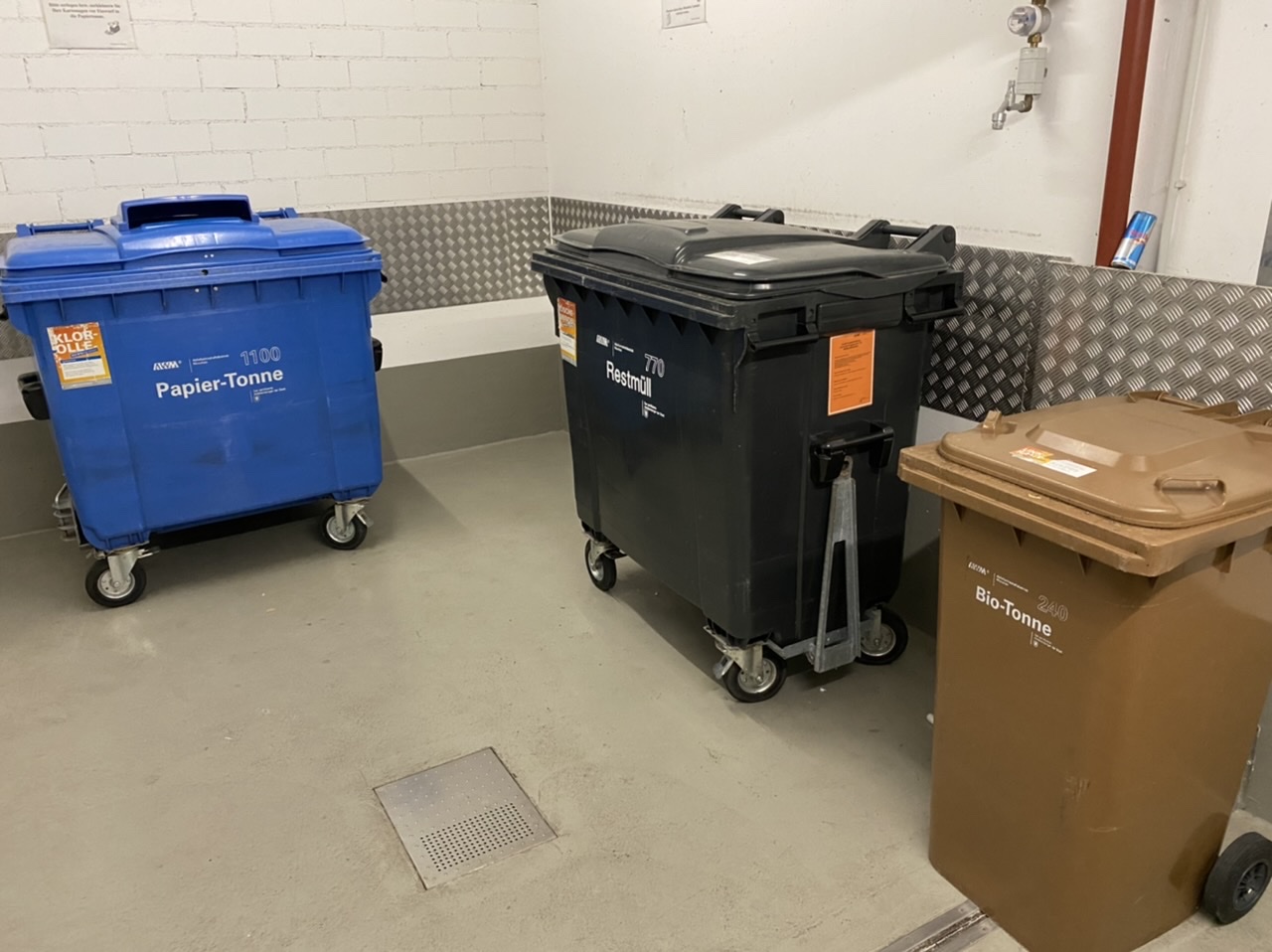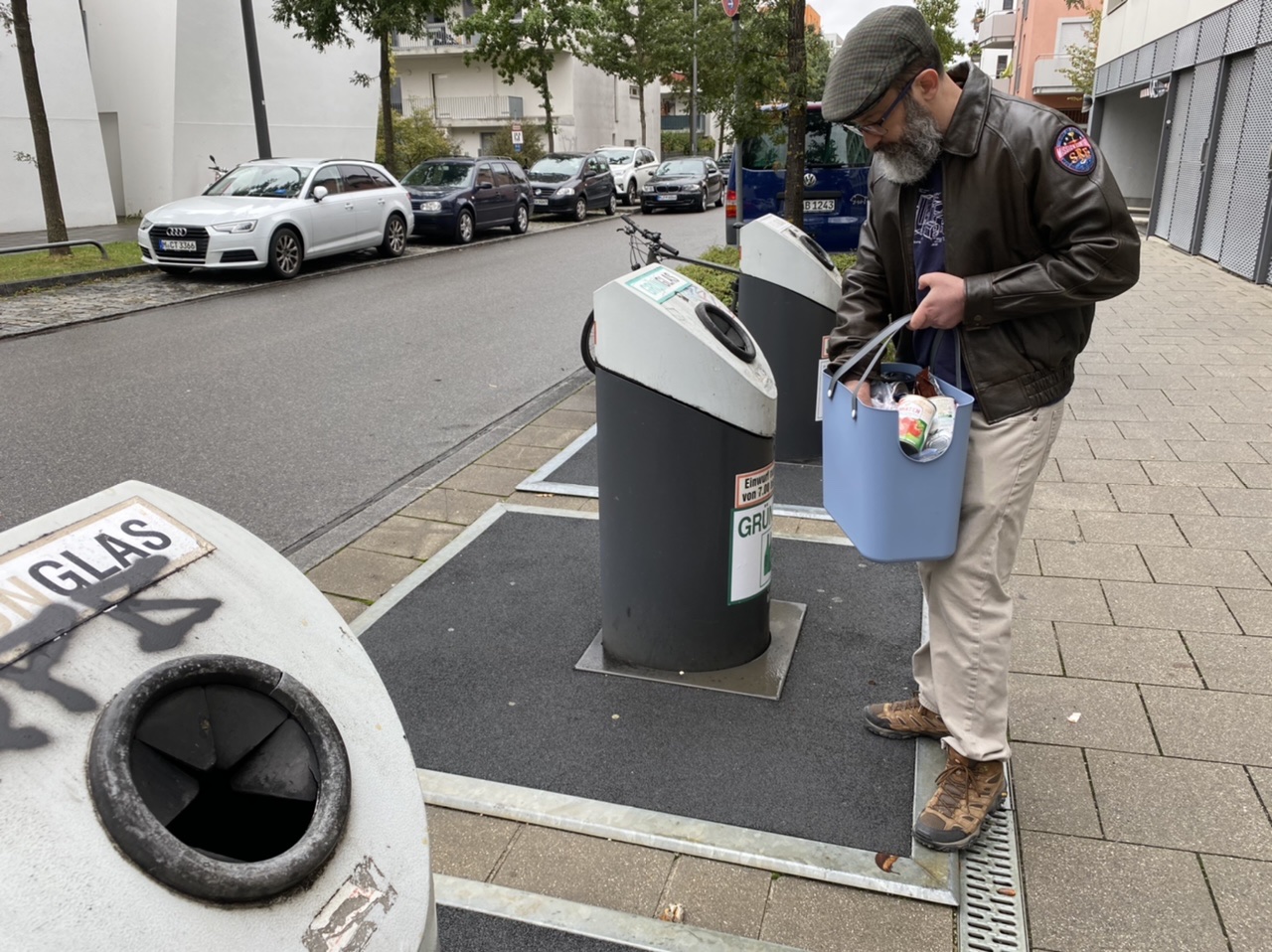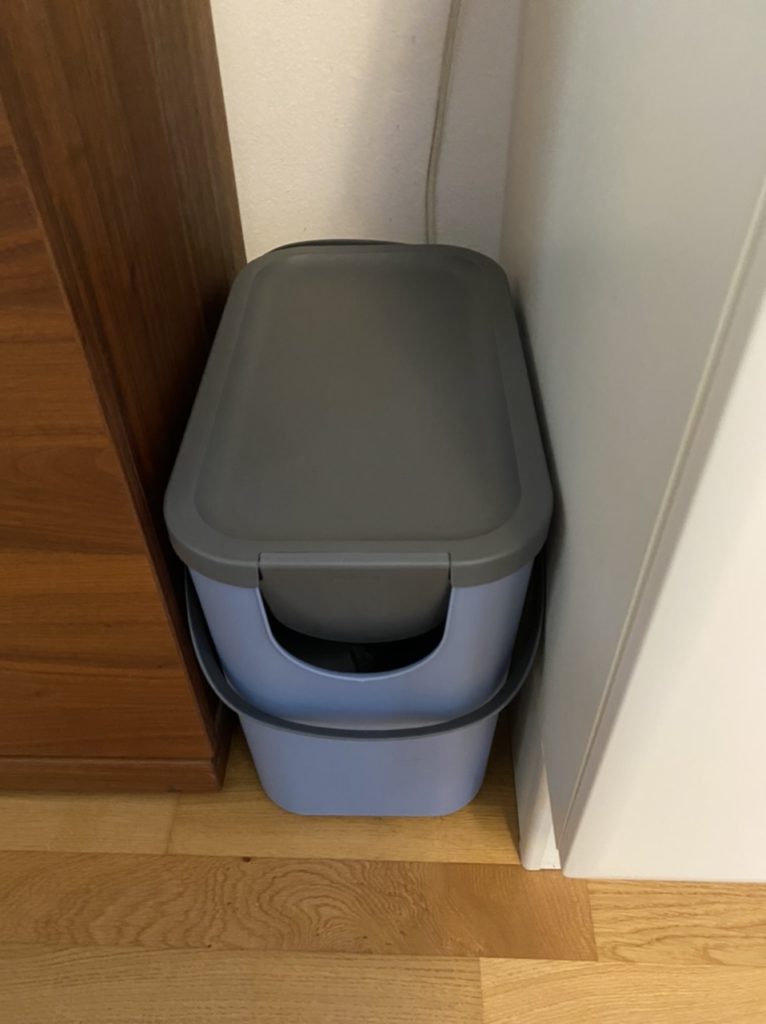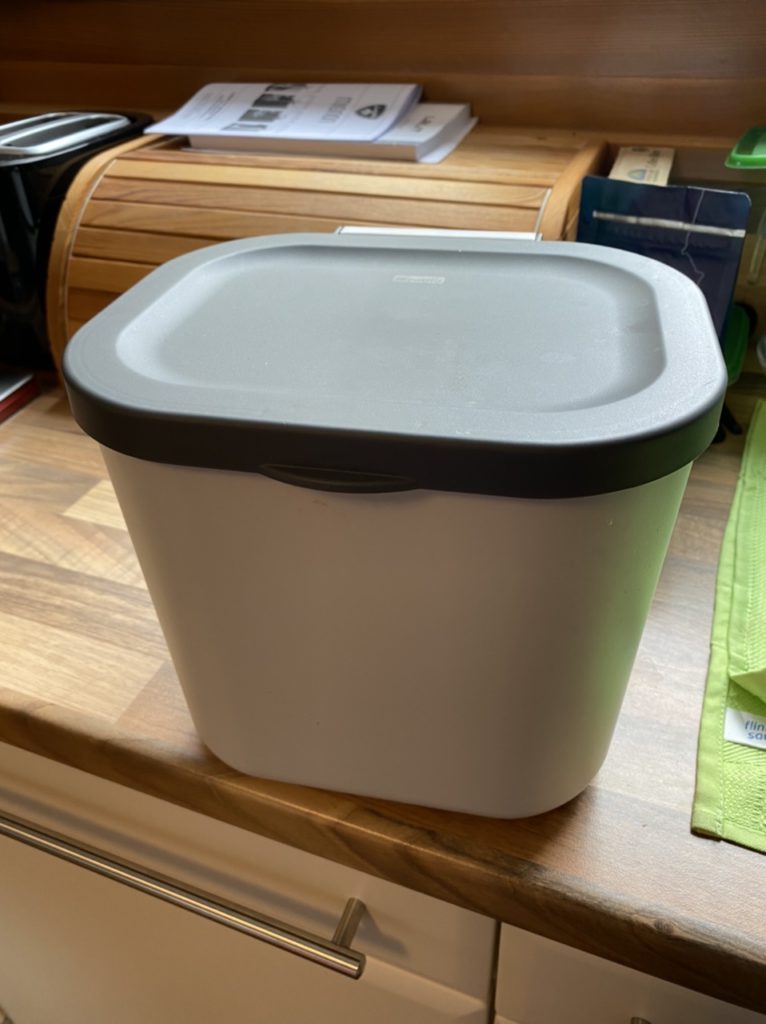Oh, did you think I was talking about him? Nope. In this case I happen to be discussing actual literal trash. I bet you feel silly now.
If you guessed that Germans would be Very Systematic About Dealing with Rubbish, you are correct. Rodd had done his research before arrival and informed me quite seriously that there were at least seven types of waste that we’d need to sort and deal with. After a few weeks, I think I’ve got it figured out.

Our building has a rubbish room (Müllraum) with three different bins. The little brown one is for organic waste (Bio): vegetable trimmings, meat off-cuts, coffee grounds, egg shells, paper towels, and things that will decompose. The blue one is for paper and cardboard. And the grey one is for the rest (Restmüll)… but not counting the recyclables.

The recyclables get dropped off in bins down the street, and there are actually four different options there: white glass, green glass, brown glass, and “Kunststoff und Dosen” (plastic and cans). And by plastic, they mean pretty much any packaging material. I’ve been checking, and just about all of them have recycling symbols on them. So really, by the time you sort all that stuff out, there’s really not a lot left for the Restmüll.


In terms of how we organise at home, I got a couple of these Rotho Albula waste bins from Amazon. The big blue one is for the mixed recycling that we take down the street, and the little one lives on the counter for the compostables. We also have a pull-out double bin under the sink for paper and the remaining rubbish.
How very organised and logical and sustainable right? Don’t you wish we could deal with all human garbage this way? 😬

Comments
2 responses to “Rubbish. Human garbage. Trash.”
Yep – germans have one of the best sorting and recycling systems in the world. Light years ahead of other European countries.
It seems to be identical to the Irish system.